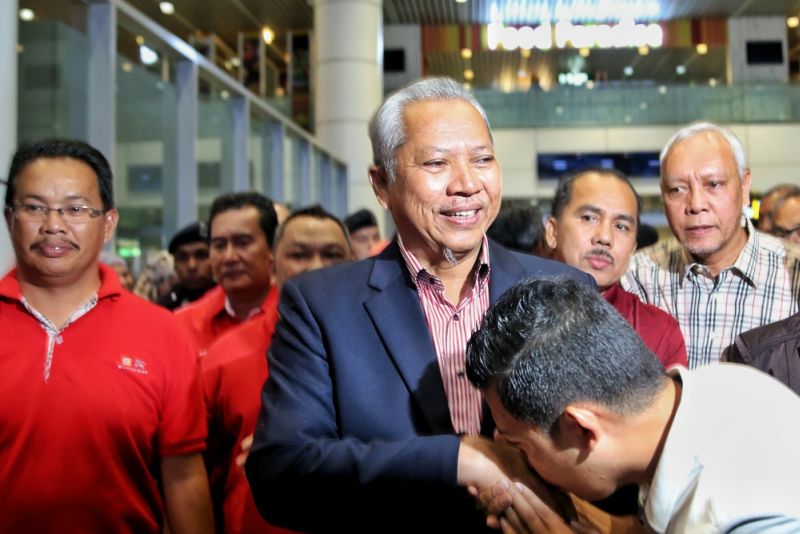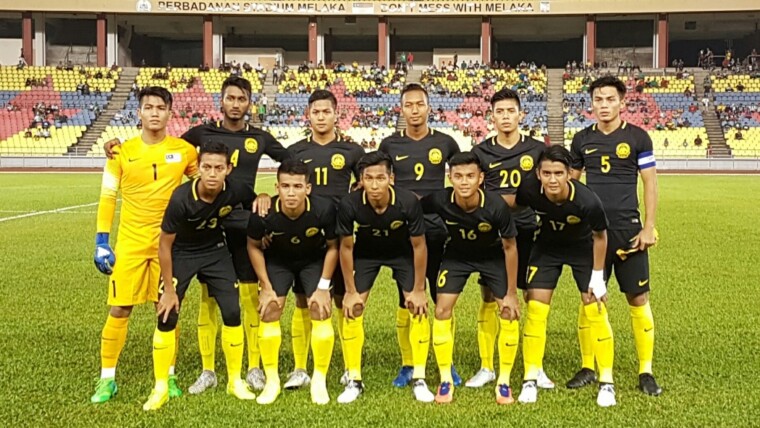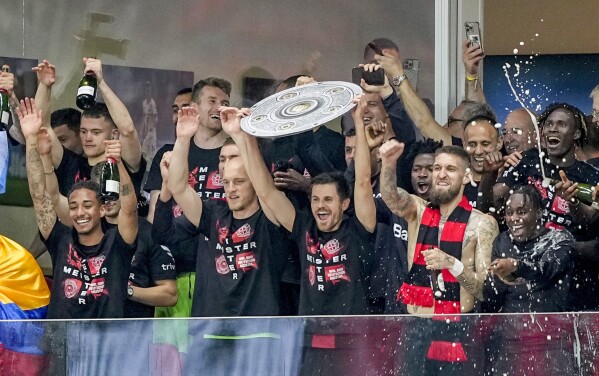There comes a time when you’ve got to call a spade a spade.
But it seems to be a real problem for Kelantan FA – one that’s continuously victimising some of the most passionate fans in Malaysian football. From making a mockery out of their customary red themed jersey to making false promises over years to ultimately even playing the ‘victim card’ every single time a storm hits their beautiful and quaint shores.
The paradox in this is that, their strategy has worked. They’ve been able to escape and slither themselves out of major public relations crises by simply pinning the blame on something else – be it another party, external factors or the sheer helplessness of their situation. The inefficacy of Malaysia’s football governing body has also fueled their nonchalant attitude to a large extent, but on Tuesday, the paradigm shift happened.
OFFICIAL: Kelantan and T-Team docked six points over unpaid wages
READ: https://t.co/rllpTr7mF4 pic.twitter.com/woFfSZtelx
— StadiumMY 🇲🇾 (@StadiumMY) May 2, 2017
Football Malaysia LLP announced that four M-League teams would be docked six points for not paying wages on time and the decision inevitably sparked fury as Tan Sri Annuar Musa rushed to his social media chambers to unleash a statement filled with umbrage and disdain. But the damage had already been done. Sir Alex Ferguson famously said that a good goalkeeper would win you 10 points every season. Kelantan lost 60% of that in one single day, despite having Khairul Fahmi Che Mat in goal. Calling it disastrous would be an understatement.
Annuar Musa’s excuses have often been tin pot to say the least. But under duress, they became farcical. “Premier League teams have debts too, but do they get docked points for it?” he asked via Facebook, earlier this week. Leave alone the fact that he doesn’t seem to get the nuanced dissimilarity between debt held by Premier League teams and the debt that Kelantan are being punished for, Annuar Musa’s decision to even utilize this example in on a public spectrum while FIFPro breathes down their neck, was unfathomable.
Clubs have debts and continue as though nothing is wrong? Why is this tolerated, @FAM_Malaysia? (Cc: @pfamalaysia)https://t.co/rvwfnbpdCU
— FIFPRO (@FIFPRO) May 1, 2017
Romanticism is great, but given the scope of modern football and what it entails these days, you’ve got to view it objectively. Annuar Musa claims Kelantan are a poor football club. If that’s the case, then spend within your means. That’s a basic business principle that applies to any profit-making or even non-profit organizations out there. There’s a reason why accountants are highly valued in organisations – and it’s not to figure out ways for a team to blow their budget without fail every single year. It’s been a fulcrum of Kelantan’s problem but the management keeps getting away with it, despite showcasing a clear inability to make financially sound decisions. Why were players offered long-term deals with the club when there were no long-term financial plans on the table? Why were ludicrous deals negotiated when sponsorship payments were lagging behind? Why did they go on to sign a new technical director when former players are owed money?
Ilijoski becomes latest ex-player to slam Kelantan for unpaid wages
READ: https://t.co/xNRV5PWirZ pic.twitter.com/2gzZuTjb8F
— StadiumMY 🇲🇾 (@StadiumMY) May 3, 2017
Wanting to maintain a certain level of competitiveness is understandable but must that trump the need to preserve and protect the interests of individuals who work under your organisation? Competing with the other teams is a crucial part of football, we get it. And winning matters a lot to the people of Kelantan. But does it really have to come at the expense of you threatening people’s livelihoods? Does it really have to come at the behest of not fulfilling promises and contractual obligations that are made with players and coaches? Definitely not.
McKain akan temui FIFA untuk menuntut gaji dari Kelantan
BACA: https://t.co/UAwBvnU5RC pic.twitter.com/o1PQ9X1X4m
— StadiumMY 🇲🇾 (@StadiumMY) December 19, 2016
There’s also the ridiculous wage bar in Malaysian football. But is it really difficult to set a wage limit within your own recruitment department and form a squad with players that fit the bill? If Annuar Musa loves cherry picking examples from the EPL (albeit nonsensical ones), then he should also acknowledge the fact that Leicester City won the title with arguably one of the smallest budgets in the Premier League last year. He should acknowledge the fact that Sunderland, despite having the 10th most expensive wage budget in the Premier League, have been relegated. Football is a competitive sport, and while money plays a huge part, it doesn’t need to be the be all and end all of the game. There are creative ways to survive. Take a look at Freiburg’s financial model in the Bundesliga. That’s financial consistency.
Azraai Khor vs KAFA becomes latest allegation to rock Kelantan football
READ: https://t.co/7rIc7s6FC7 pic.twitter.com/nNYzHPZ5bZ
— StadiumMY 🇲🇾 (@StadiumMY) May 4, 2017
It doesn’t really matter if Annuar Musa has injected his own money into the team in the past. To some, it may look like a Robin Hood-esque gesture. But in essence, it’s still a clear sign of financial mismanagement. If Ed Woodward were to be forced to inject his own money into the club, he may be a hero to some. But the action will undoubtedly instill a sense of worry into the fans. Sponsorship deals are tricky – we get that. But if Kelantan had not received payments from their sponsors, why did they ever go ahead with the option of signing players, year in, year out. Foreign players are arguably more expensive than local ones, but yet, Kelantan have four foreigners in the team this season. Over-dependence on a singular sponsor also speaks a lot about the level of competency within Kelantan’s marketing department.
Steve Darby vs KAFA: Why are we not talking about the ‘discount’?
READ: https://t.co/XijDiQUDi1 pic.twitter.com/0I4HgAlYJh
— StadiumMY 🇲🇾 (@StadiumMY) June 2, 2016
Despite suffering from constant financial issues over the last few years, the club has gone on to make expensive decisions. They’ve consistently brought in brand new personnel while owing money to former employees and it’s a vicious cycle that has finally culminated in them being docked six points this year. Steve Darby was owed money when George Boateng was brought in. Azraai Khor was then owed money, alongside Steve’s unresolved case, when Velizar Popov was brought in, a couple of years later. It has happened over and over again.
Malaysians react to PM Najib’s comment about Kelantan FA’s financial woes
READ: https://t.co/MeqkD5piSg pic.twitter.com/HjSfHk9L0s
— StadiumMY 🇲🇾 (@StadiumMY) December 22, 2016
Let’s call another spade a spade. Malaysian football isn’t a finished product, that’s a given. We’re still figuring out a broadcasting system that could benefit teams on a bigger scale, it’s difficult to profit out of a league that lacks value in different facets. There’s also a case to be made for FAM and FMLLP to make the league more attractive for sponsors and investors. There’s also a case to be made for fans to be more proactive in attending matches at the stadium and help the club strengthen its value – something that’s hugely pivotal in being able to attract any form of investment.
“They made us poor!” – Annuar Musa demands punishment for FMLLP
READ: https://t.co/X1Bp1jSr6t pic.twitter.com/vYWLevZNud
— StadiumMY 🇲🇾 (@StadiumMY) April 24, 2017
However, understanding that these problems exist, what can football clubs do to sustain themselves while they engage in these constructive ‘value-building’ processes? Just as start-up companies and small medium enterprises employ conservative fiscal strategies, it all goes back to keeping your house in order. Can Kelantan do that? Should Kelantan do that? The answer to both questions has to be an overwhelming yes. Austerity is never an attractive word it but it may just be everything Kelantan need at this juncture.
EXCLUSIVE
“Annuar Musa made it impossible for me to focus on football” – @JonnyMcKain
READ: https://t.co/1R9UnpK5oN pic.twitter.com/wnwb5Y49ui
— StadiumMY 🇲🇾 (@StadiumMY) February 26, 2017
Annuar Musa and KAFA have spent years pinning the blame on everything else but themselves. But given what transpired over the last one week, they now owe it to their fans, to at least stand up and own up to their own mistakes. Times are tough, but as the proverbial saying goes, recognizing your own failures and flaws is more often than not, the first climacteric step in solving the problem.
Other posts by Keeshaanan Sundaresan







